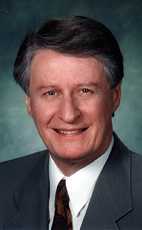Madam Speaker, unless I am mistaken, the list in question will not be used for the next election, but for the following one, which is a number of years away, probably seven or so.
The feeling of urgency expressed by the member opposite makes me wonder somewhat. It is as though he wants to justify the fact that election lists made by the provinces, including the state of Quebec, are not being used. The member sounds like he wants to eliminate or avoid the use of these lists when he says that they will not be ready for the next election. However, this is not the issue. This is not the object of the legislation before us. We are talking seven years down the road.
In all fairness, the hon. member opposite should consider using provincial lists to ensure a better use of public moneys. We keep talking about avoiding duplication. Here is an excellent opportunity to do things right, because we have the time to do so. We have several years ahead of us to set up a fair system.
You will agree with me that this is not a list that Quebec will be able to use in the context of a federal election, given that, seven years from now, our province will likely have become a sovereign state. Still, the arguments raised by Reform Party members make sense. Indeed, whether we are talking about the Canada of today or the Canada of tomorrow, it makes sense to make better use of public moneys. Therefore, we should immediately start planning to use provincial lists.
This brings me to make a comment. You will recall that, in Quebec, we experienced certain problems. For example, on a number of occasions, residents from another province voted in Quebec by using their secondary residence, a cottage or what have you, or some other scheme.
If there was only one list and only one source of data within each province, this kind of double residency status that allows a person to vote in two different jurisdictions would no longer exist. I imagine that if these things happen in Quebec with out of the province residents, they must also occur in other provinces.
So, while the issue of a single list is first and foremost a matter of making good use of public moneys, it also ensures having reliable information. With two lists and two sets of data, consistency will be a challenge. But if we have only one list and specified, well identified data sources, a higher level of integrity will be possible, and it will be that much easier to monitor and maintain that integrity in our list.
It is a better solution from all points of view. Not only costs will reduced, but we will also have a better quality list. The process the government party is suggesting has two flaws.
Expenses will be duplicated. Surely, we cannot afford to spend money we do not have, especially if expenses are duplicated. Furthermore we will end up with lists whose integrity will never be assured. In fact we are quite certain their integrity will not be adequate. Comparisons will be made between both lists and inconsistencies will remain.
In this House today, we have an opportunity to implement a smarter process that will save taxpayer dollars. The Canadian list will be made up from provincial lists, and the level of integrity will be extremely high.
I repeat that Quebec will probably never have to use such a list, but I think that, at this time, this is what should be done out of respect for taxpayers who pay for government operations. This is a golden opportunity to use cautiously taxpayer dollars, reduce costs, and in the process, get more for our money. Opposition parties are fully playing their role of looking after the public interest.
I cannot understand why the government party seems to think or rather insists that provincial guarantees are inadequate. It is deliberately ignoring better solutions, and refusing co-operation and a better use of taxpayer dollars.
I cannot understand why. It is really strange. You will pardon my persistence, but I will ask once more the government party to reconsider. This list will be used seven years from now. It seems to me we have all the time we need to do things correctly, and I cannot understand why we should not do it. In conclusion, I hope the wisdom that prevails in opposition parties will also prevail in the government party.

